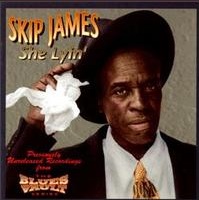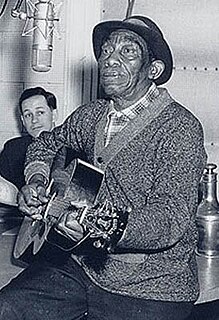
John Smith Hurt, better known as Mississippi John Hurt, was an American country blues singer and guitarist.
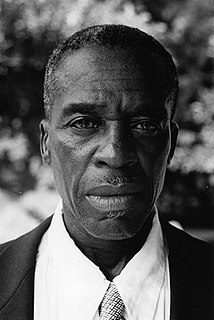
Nehemiah Curtis "Skip" James was an American Delta blues singer, guitarist, pianist and songwriter.

Booker T. Washington "Bukka" White was an American Delta blues guitarist and singer.
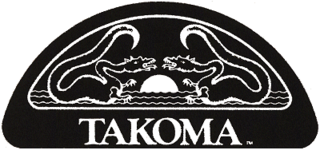
Takoma Records was a small but influential record label founded by guitarist John Fahey in the late 1950s. It was named after Fahey's hometown, Takoma Park, Maryland, a suburb of Washington, D.C.

The Transfiguration of Blind Joe Death is a 1965 album by American fingerstyle guitarist and composer John Fahey. Originally issued in a hand-lettered edition of 50, it was Fahey's first album to be released by a label other than his own Takoma Records. As with all of Fahey's independently released early albums, it had little critical recognition upon release. The album has grown in stature since its reissue on CD in 1997 and is now highly regarded critically. It was Fahey's fourth album to see release, though after his fifth album, The Great San Bernardino Birthday Party & Other Excursions, was labeled Guitar Vol. 4, reissues of The Transfiguration of Blind Joe Death were subtitled John Fahey, Volume 5.
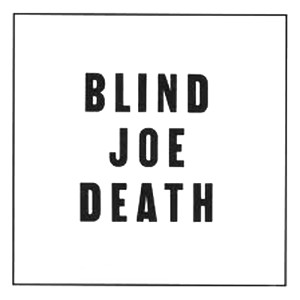
Blind Joe Death is the first album by American fingerstyle guitarist and composer John Fahey. There are three different versions of the album, and the original self-released edition of fewer than 100 copies is extremely rare.

John Aloysius Fahey was an American fingerstyle guitarist and composer who played the steel-string acoustic guitar as a solo instrument. His style has been enormously influential and has been described as the foundation of the genre of American primitive guitar, a term borrowed from painting and referring mainly to the self-taught nature of the music and its minimalist style. Fahey borrowed from the folk and blues traditions in American roots music, having compiled many forgotten early recordings in these genres. He would later incorporate 20th-century classical, Portuguese, Brazilian, and Indian influences into his work.
Eugene "ED" Denson is an American music group manager, producer, record label owner, and, later, lawyer, who has made notable contributions to folk, blues, and early San Francisco rock.
William Henry Barth was an American blues guitarist who, along with John Fahey and Henry Vestine, located 1930s blues great Skip James in a hospital in Tunica, Mississippi in 1964.
"I'm So Glad" is a Delta blues-style song originally recorded by American musician Skip James in 1931. Blues historian Gerard Herzhaft notes "This spiritual probably dates back to the beginning of the blues". Blues writer Stephen Calt describes it as "a Two-Step piece marked by fiendishly fast playing [in] an eight bar arrangement comprised of single measures." He adds it is not related to an earlier Lonnie Johnson tune.

The Voice of the Turtle is the seventh album by American guitarist John Fahey. Recorded and released in 1968, it is considered one of his more experimental albums, combining not only folk elements, but shreds of psychedelia, early blues, country fiddles, ragas, and white noise. The album had many reissues with various track listings, jacket designs and mismatched titles.

Denny Bruce is an American record producer and artist manager.

Death Chants, Breakdowns & Military Waltzes is a 1963 album by American fingerstyle guitarist and composer John Fahey. Various sources show either a 1963 or 1964 original release. It was Fahey's second release and the first to gain a national distributor.
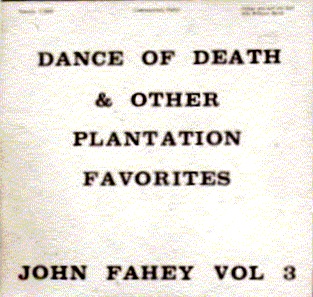
The Dance of Death & Other Plantation Favorites is the third album by American fingerstyle guitarist and composer John Fahey, released in 1965. The 1999 reissue contained four previously unreleased tracks.
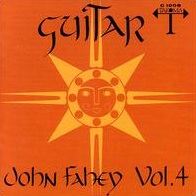
The Great San Bernardino Birthday Party & Other Excursions is an album by American fingerstyle guitarist and composer John Fahey, released in 1966. The cover simply labels the album Guitar Vol. 4 while the liner notes label it The Great San Bernardino Birthday Party & Other Excursions. The title never appeared on the record labels themselves. It marked the beginning of Fahey's interest in his recording of experimental soundscapes and sound effects. Despite Fahey's distaste for the 1960s counterculture, it is his release most often referred to as psychedelic.

After the Ball is an album by the American folk musician John Fahey, released in 1973. It was his second and last recording on the Reprise label and like its predecessor, Of Rivers and Religion, it sold poorly.

The Best of John Fahey 1959–1977 is a compilation album by American fingerstyle guitarist and composer John Fahey, released in 1977. The songs are collected from four of Fahey's dozen or so releases up to that point.
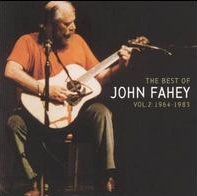
The Best of John Fahey, Vol. 2: 1964–1983 is a compilation album by American fingerstyle guitarist and composer John Fahey, released in 2004.
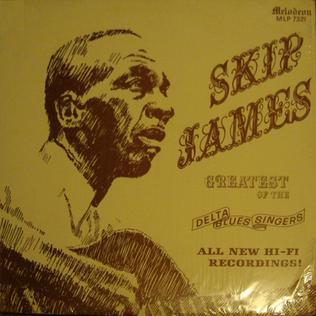
Greatest of the Delta Blues Singers is the debut album by the American blues singer Skip James, released in 1965. It was his first album released after his rediscovery in 1964.

The Seal of the Blue Lotus is the debut studio album of composer and guitarist Robbie Basho, released in 1965 by Takoma Records.
